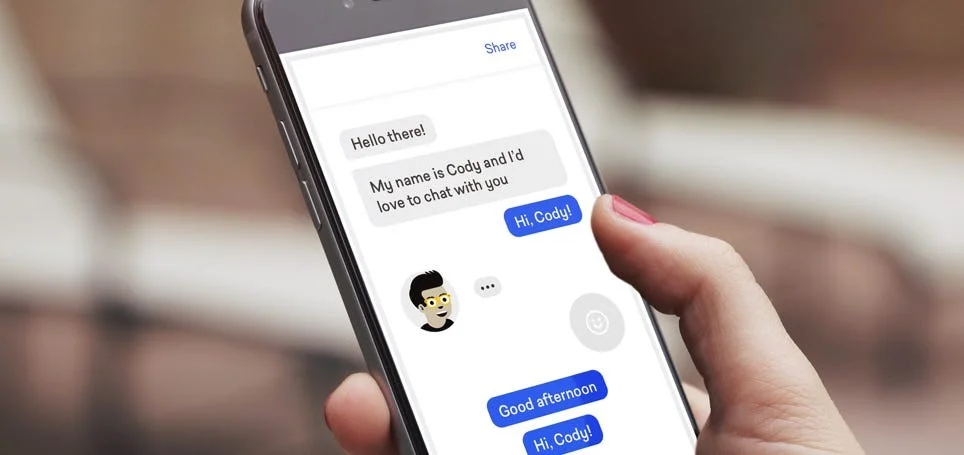Conversational AI in healthcare is being anticipated as a potential groundbreaking tool to reshape the patient care, diagnosis, and overall healthcare management. This revolutionary integration of artificial intelligence with natural language processing has paved the way for more efficient and personalized healthcare solutions.
Before diving into future applications of conversational AI in healthcare, let’s understand what exactly conversational AI is and what is the role of data science in it?
Explore more about best career choice between Artificial Intelligence and Data Science here
What is Conversational AI?
Conversational AI is like having a smart, virtual companion that understands and responds to our natural way of talking. It’s a sophisticated technology that enables computers to engage in conversations with users, making interactions more human-like and intuitive. Instead of clicking buttons or navigating through menus, you can simply chat with a computer or a device as if you were talking to a friend.
This AI is trained to comprehend language nuances, context, and even emotions, allowing for a more personalized and natural exchange. Whether it’s asking questions, seeking information, or getting assistance, conversational AI aims to make human-computer interactions feel less like a technical process and more like a genuine conversation. It’s the bridge between the complexity of machines and the simplicity of human communication, revolutionizing the way we interact with technology in our daily lives.

What is the role of Data Science in Conversational AI?
The role of data science in conversational AI is like the behind-the-scenes maestro ensuring that our virtual interactions are not just smooth but also intelligent. Data science provides the brainpower, analyzing vast amounts of information from conversations to understand patterns, context, and user behavior. It’s the reason why virtual assistants seem to know us so well—they learn from our interactions.
Find out more about Top 11 AI Models and Tools for Generative AI in Healthcare
Data science helps fine-tune these conversational AI systems, making them smarter over time. By processing and interpreting the data generated from our conversations, data science enables the AI to respond more accurately, predict user needs, and continuously improve its language understanding capabilities. In essence, data science is the unsung hero, turning raw information into the magic that makes conversational AI feel not just automated but truly intelligent and personalized.
Know more about biological data science, clinical data science, pharmaceutical data science as a career option
What are Future Applications of Conversational AI in Healthcare?
1. Symptom Analysis and Triage:
Healthcare conversational AI platforms equipped with advanced algorithms can analyze and interpret symptoms described by patients. By asking relevant questions and considering historical data, these systems can provide preliminary assessments and suggest appropriate levels of care. This automated triage process facilitates quicker response times and ensures that urgent cases receive prompt attention.
2. Remote Monitoring and Chronic Disease Management:
The application of conversational AI in healthcare extends to remote patient monitoring, particularly beneficial for individuals with chronic conditions. Virtual assistants can collect real-time data from wearable devices, answer queries related to health metrics, and provide timely alerts or recommendations. This proactive approach to healthcare helps manage chronic diseases more effectively, reducing the need for frequent hospital visits.
3. Patient Engagement and Education:
Conversational AI in healthcare has empowered patients by providing a user-friendly interface for information retrieval and education. Virtual assistants can engage patients in informative conversations about their medical conditions, treatment options, and lifestyle modifications. These interactions contribute to a better-informed patient population, fostering a proactive approach to healthcare.
4. Appointment Scheduling and Reminders:
Streamlining administrative processes is a key advantage of integrating conversational AI in healthcare. Patients can effortlessly schedule appointments, receive reminders, and even make necessary adjustments to their schedules. This not only enhances patient convenience but also optimizes the workflow for healthcare providers, ensuring a more organized and efficient system.
5. Medication Management:
Adherence to prescribed medication regimens is a critical aspect of patient care. Conversational AI in healthcare plays a pivotal role in medication management by sending timely reminders, offering dosage information, and addressing concerns about potential side effects. This not only improves patient compliance but also contributes to better treatment outcomes.

6. Mental Health Support:
The integration of conversational AI in mental health services has been a significant boon. Virtual assistants can engage in empathetic conversations, offer support, and provide coping strategies for individuals dealing with mental health challenges. This proactive support system enhances accessibility to mental health resources and reduces the stigma associated with seeking help.
7. Language Accessibility:
Conversational AI in healthcare breaks down language barriers, making healthcare services more accessible to diverse populations. Multilingual virtual assistants can facilitate communication between healthcare providers and patients who may have limited proficiency in the local language. This inclusivity ensures that every individual can effectively express their health concerns and understand medical guidance.
8. Training and Continuous Medical Education:
Healthcare conversational AI is not limited to patient interactions; it also plays a crucial role in training healthcare professionals. Virtual assistants can simulate medical scenarios, assist in procedural training, and offer continuous medical education modules. This dynamic approach to training enhances the skills of healthcare practitioners and ensures they stay updated with the latest advancements in their respective fields.
9. Enhancing Telehealth Services:
Telehealth has become increasingly prevalent, and conversational AI is integral to its success. Virtual assistants facilitate seamless communication between healthcare providers and patients during virtual consultations. They can gather relevant medical history, assist in conducting preliminary assessments, and ensure a smooth flow of information, enhancing the overall telehealth experience.
10. Feedback and Quality Improvement:
Conversational AI in healthcare serves as a valuable tool for collecting patient feedback and assessing the quality of healthcare services. By engaging in post-appointment or post-discharge conversations, virtual assistants can gather insights into patient experiences. This data aids healthcare providers in identifying areas for improvement and enhancing the overall quality of care.
Conclusion
Conversational AI in healthcare stands at the forefront of a transformative era, where technology and human-centric care converge to create a more efficient, accessible, and patient-focused healthcare ecosystem. From patient engagement to remote monitoring, the applications are diverse and impactful. As we navigate the future of healthcare, the continued integration of conversational AI promises to redefine the patient experience and contribute to improved health outcomes for individuals worldwide. Embracing this technological wave is not just an option but a necessity for a healthcare system that evolves with the needs of its patients.
Explore more about data-driven healthcare innovations and challenges in 2024



